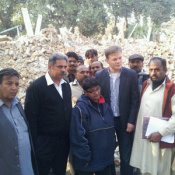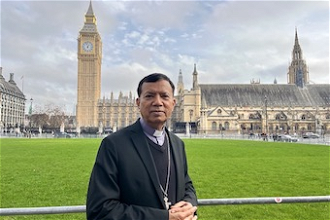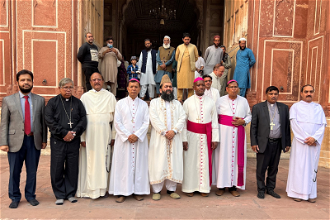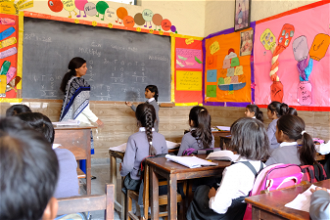Pakistan: government destroys Catholic church, homes, school

Shocked residents inspect site of their demolished homes
The Punjab government in Pakistan stands accused of 'brutal injustice' for sending bulldozers into a Church-owned site and demolishing homes for poor, elderly and homeless people, a school for poor girls and a church.
Poverty-stricken families living on the two-acre site in Lahore were woken at 6.30am and asked to evacuate their homes. All the buildings on the site were destroyed including a small church and at least seven houses - which still had the occupants' belongings inside.
With nowhere to go, a number of families and people working in the school camped out overnight on the demolished site, in Allama Iqbal Road, in Lahore's Garhi Shahu district, and the following morning, yesterday (11 January) a protest march was held.
Stating that the Church had proof of ownership of the site dating back to 1887, Catholic Bishop Sebastian Shaw of Lahore condemned the state government of Punjab, accusing it of "carrying out a criminal act of land-grabbing". Speaking to Aid to the Church in Need from Lahore, he said he had summoned priests of the diocese to a crisis meeting to prepare a High Court writ to reclaim the site.
Condemning the demolition job, Bishop Shaw said: "What the state government of Punjab has done is a very, very brutal act of injustice.
"How can they do such a thing, just to come in, wreck a charitable institution and ruin the lives of people living there? They do not listen to anybody."
He added: "This is a criminal act of land-grabbing by the government functionaries."
Warning of further government action to seize Church-owned property, he said: "Everybody is worried now that the state government and especially the ruling party in the Punjab Province [the Muslim League 'N'] have their eye on our buildings and land."
One of those who lost their homes was Zoniba Richard, aged 62. She said her belongings were destroyed, that she was homeless and without family to go to.
Mrs Richard said she slept out in the cold on the first night after the demolition.
Asked about her plans for the future, she said: "I don't know. I can only trust in God."
She was interviewed on the site by Joris van Voorst tot Voorst, National Director of Aid to the Church in Need's office in the Netherlands.
He happened to be in Lahore at the time on a fact-finding exercise and was on the scene within hours of the incident alongside Dr Pieter Omtzigt, also from the Netherlands.
Dr Omtzigt said: "The rights of minorities are being trampled upon."
Reverend Dr Alexander John Malik, Anglican Bishop of Lahore, also condemned the demolition and demanded that the Punjab government rebuild what had been destroyed. He said that a Blasphemy Law case should be registered for the desecration of the Bibles, crosses and the church without prior ecclesiastical permission.
In a message from the Anglican Church of Pakistan, the bishop stated that the demolition "manifests unaccounted power and explains grave injustice and cruelty towards non-Muslims/religious minorities in Pakistan".
Saying that the Church had not received prior warning of the demolition plans, Father Emmanuel Yousaf Mani, National Director of the Catholic Church's National Commission for Justice and Peace (NCJP), spoke to Aid to the Church in Need from the site. He said: "People are very sad. They are very angry. They are still sitting in the place that they call home."
The priest added: "We have the papers to show who the rightful owners of the site are.
The government must have done something which was not correct to change the facts of the case."
Fr Yousaf said that the site is still registered in the name of the Lahore Charitable Association, a trust made up of clergy and lay people from different Christian denominations with the Catholic Bishop of Lahore presiding as chairman.
He said that controversy over the ownership had arisen a few years ago when the main building on the site was used as a refuge for destitute women run by religious Sisters.
One of the women given refuge converted to Islam and began harassing the Sisters and querying the rightful ownership of two rooms which she had occupied.
The state authorities were notified and their subsequent discussions with the Church broke down.
According to local newspaper reports, local government officials claim the site was declared state land by the authorities in 2007. Since then, he said, the government had notified the owners of the centre several times. It is understood that the site is very valuable and that the state government is anxious to profit from it.
Critics have pointed to a dramatic change in policy towards minority groups since the death of Salman Taseer, Governor of the Punjab, who was assassinated on 4 January 2011 for his outspoken criticism of oppression of minority groups.
Source: ACN


















